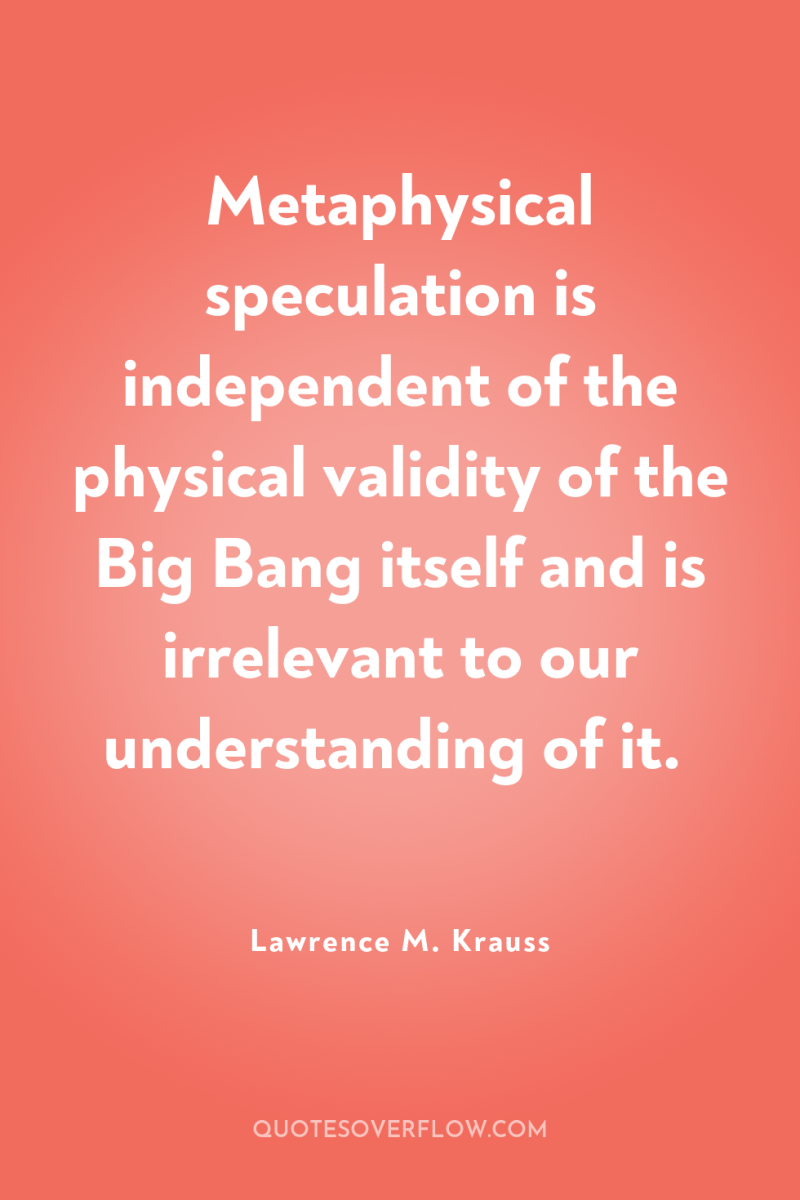1
The amazing thing is that every atom in your body came from a star that exploded. And, the atoms in your left hand probably came from a different star than your right hand. It really is the most poetic thing I know about physics: You are all stardust. You couldn’t be here if stars hadn’t exploded, because the elements - the carbon, nitrogen, oxygen, iron, all the things that matter for evolution - weren’t created at the beginning of time. They were created in the nuclear furnaces of stars, and the only way they could get into your body is if those stars were kind enough to explode. So, forget Jesus. The stars died so that you could be here today. .Lawrence M. Krauss
2
If we wish to draw philosophical conclusions about our own existence, our significance, and the significance of the universe itself, our conclusions should be based on empirical knowledge. A truly open mind means forcing our imaginations to conform to the evidence of reality, and not vice versa, whether or not we like the implications.Lawrence M. Krauss
3
Of course, supernatural acts are what miracles are all about. They are, after all, precisely those things that circumvent the laws of nature. A god who can create the laws of nature can presumably also circumvent them at will. Although why they would have been circumvented so liberally thousands of years ago, before the invention of modern communication instruments that could have recorded them, and not today, is still something to wonder about. .Lawrence M. Krauss
4
In 5 billion years, the expansion of the universe will have progressed to the point where all other galaxies will have receded beyond detection. Indeed, they will be receding faster than the speed of light, so detection will be impossible. Future civilizations will discover science and all its laws, and never know about other galaxies or the cosmic background radiation. They will inevitably come to the wrong conclusion about the universe... We live in a special time, the only time, where we can observationally verify that we live in a special time.Lawrence M. Krauss

5
Metaphysical speculation is independent of the physical validity of the Big Bang itself and is irrelevant to our understanding of it.Lawrence M. Krauss
6
Now, almost one hundred years later, it is difficult to fully appreciate how much our picture of the universe has changed in the span of a single human lifetime. As far as the scientific community in 1917 was concerned, the universe was static and eternal, and consisted of a one single galaxy, our Milky Way, surrounded by vast, infinite, dark, and empty space. This is, after all, what you would guess by looking up at the night sky with your eyes, or with a small telescope, and at the time there was little reason to suspect otherwise.Lawrence M. Krauss
7
[I]n science we have to be particularly cautious about 'why' questions. When we ask, 'Why?' we usually mean 'How?' If we can answer the latter, that generally suffices for our purposes. For example, we might ask: 'Why is the Earth 93 million miles from the Sun?' but what we really probably mean is, 'How is the Earth 93 million miles from the Sun?' That is, we are interested in what physical processes led to the Earth ending up in its present position. 'Why' implicitly suggests purpose, and when we try to understand the solar system in scientific terms, we do not generally ascribe purpose to it. .Lawrence M. Krauss
8
We need to live our experience as it is and with our eyes open. The universe is the way it is, whether we like it or not.Lawrence M. Krauss